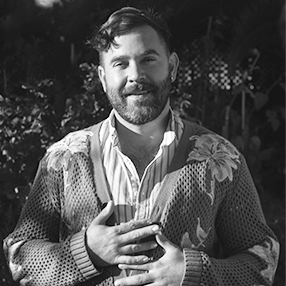My Hole. My Whole.
what to call you who i’ve slept beside through so many apocalypses
the kind that occur nightly in this late stage of the collapsing west
boyfriend was fine even though we are neither boys nor men but love
how it makes us sudden infants in the eyes of any listener—how
it brings us back to some childhood we never got to live. that was,
at the time, unlivable. my sweetheart. my excised sheep’s-heart.
my fled garden. my metal garter. after yet another man calls his wife
his partner at the dog park it’s clearly time to find another name for you—
he says it’s my partner’s birthday we’re going to buca di beppo then key largo—
and wild how quick a name becomes yet another vehicle
through which to reproduce violence. partner fit like a skin and then
that skin tightened and tore off—you who are neither my chain
italian restaurant nor my all-inclusive vacation spot. not my owner
or my only or my own. not my down payment or my dowery
of sheep and crop. not lost. not loss. apophasis is a way of naming
what is by what is not—but what is? my boutonniere. my goofy queer.
my salt. my silk. my silt. my slit. my top and my basement. my vanquished
prostate. my battered apostate. my memory. my memory. my meteor.
all these names for what exactly? to introduce what is to those
who don’t know. this is my whole. this is my hole. take part of me.
Copyright © 2024 by Sam Sax. Originally published in Poem-a-Day on August 19, 2024, by the Academy of American Poets.
“This poem began, as many do, struggling with the limitations of language. Being in a long-term, queer, poly, nonbinary relationship, we often find ourselves pushing against the terminology we inherited for how to name ourselves and our love(s), how to become legible to ourselves and to others. Both queerness and poetry can offer ways of breaking with the past and searching for strange syntax and improper nouns, not just to define an already lived experience but to eke out a space to imagine new possible futures. This poem struggles with this question of naming, of possibility, of fluidity. It offers up one way of honoring the flexibility and specificity of our loves.”
—Sam Sax

